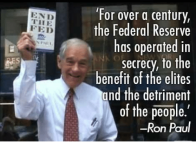...
The two most recent court rulings on master accounts are the U.S. District Court in Wyoming's decision in Custodia v. the Federal Reserve Bank of Kansas City and the Federal Reserve Board, and the U.S. District Court in Idaho's dismissal of a suit brought by PayServices Bank against the Federal Reserve Bank of San Francisco.
In both cases, the two neobanks were suing their regional reserve banks over master account denials. The decisions were issued within one day of each other, with the ruling against Custodia being cited as a reason for dismissing the PayServices suit.
While different in many ways, the two claims argued that, as state-chartered banks, Custodia and PayServices were both entitled to master accounts. This stance is based on a provision of the Monetary Control Act of 1980, which granted access to the Fed's financial services to depository institutions that were not members of the Federal Reserve System.
The debate centers on whether the law's assertion that the Fed "shall" make master accounts available to nonmember banks meant the central bank must do so or if it had the option to do so.
Judge Scott Skavdahl, the Wyoming judge overseeing the Custodia case, wrote in his decision that for the argument to be true, Congress would have been violating a long-held statutory construction principle that it not "hide elephants in mouseholes" — a legal interpretation that lawmakers cannot hide sweeping changes to regulatory frameworks in "vague terms or ancillary provisions." Therefore, he wrote, the act in question stands as proof that Congress wanted the Fed to have discretion over which banks can have master accounts.
But Conti-Brown — who was retained by Custodia as an expert witness for the case and provided written testimony — said Skavdahl's reading of the law would amount to using a vague statute to grant the Fed a significant authority.
"The idea that Congress gave the Fed untrammeled authority to deny all of these depository institutions access to the payment system based on its own whims is exactly the thing that the MCA was trying to stop," Conti-Brown said. "The argument that Congress tried to do one thing and did the complete opposite does not give me much confidence in this district court judge."
...
Meg Tahyar, a regulatory lawyer with the law firm Davis Polk, believes the ultimate decisions reached in the three master account cases will come down to statutory interpretation. But, she said, such a debate is not the ideal forum for addressing the key question of what entities should be able to engage in payments in the 21st century.
"I make a clean break in my mind between the policy question of whether non-traditional banks, fintechs or payment companies should get master accounts — is that a good policy idea — and what the statute actually says," Tahyar said. "We're having this legalistic fight when what we should really be asking ourselves is: Who should have access to a master account?"
An ironclad view on payments system access and the Fed control over it would take an act of Congress, the likes of which is not being discussed broadly — if at all — on Capitol Hill.
...
Despite the string of victories by the Fed, Julie Hill, a law professor at the University of Alabama who researches master account policy, said technically it is too soon to say that the Fed's broad authority over master accounts is settled law — but it could be soon.
"At some point, when you have no split of opinion among the circuits, it might as well be settled, but that's not where we're at yet," Hill said. "We still haven't seen any courts of appeals clearly decide this issue, so we still have some legal ambiguity."
For Custodia and PayServices, a successful appeal hinges on finding a panel of judges to interpret the Monetary Control Act as they do, Hill and others said, which is possible, given the polarizing nature of the passage in question.
Still, Hill said she expects the decisions to have a "chilling effect" on other nontraditional banks that might have otherwise sought access to the payments system.
...

















